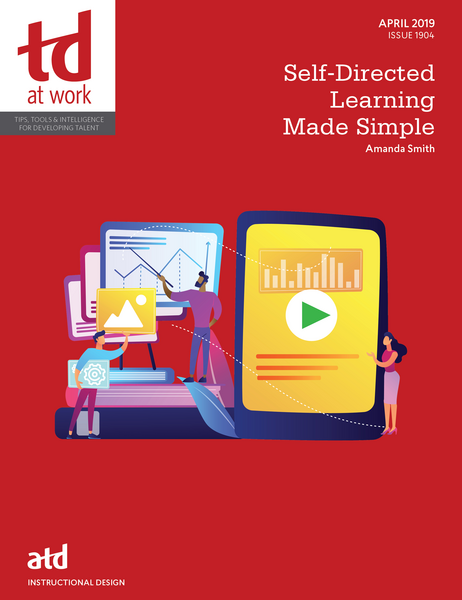TD Magazine Article
Creating a Culture Where Self-Directed Learning Can Thrive
L&D pros can help employees select the right learning goal and stay engaged.
Mon Apr 01 2019
L&D pros can help employees select the right learning goal and stay engaged.

With today's technology and disruptive world of work, employees want—and are required—to find answers to their workplace challenges more readily than ever. Self-directed learning is increasing in popularity for those reasons and others.
In "Self-Directed Learning Made Simple," Amanda Smith outlines steps that L&D professionals can take to support a self-directed learning program.
Get employees on board. Employees who participate in a self-directed learning program need to be curious, motivated, and adept at technology. But they also need to understand organizational goals so as to have their learning goals align with the organizational needs and vision. The L&D practitioner should be a conduit between the C-suite and employees in this regard.
Create a culture of collaboration. Create networking opportunities where employees can learn from each other, such as lunch & learns or social platforms that enable employees to share both challenges and best practices. Given the need for rapid innovation, it's never been more important for employees to work across silos and departments.
Sustain employees. Employees not only need to have the organizational intelligence to get started with a self-directed learning program; they also need tools and motivation to continue. Accountability checklists—which, for example, indicate behavior changes that learners will make post-training—can help. Further, employees may benefit from project management resources.
Keeping communication between employees and their manager going and providing reflecting checkpoints for learners also can help keep them engaged.
These tips were adapted from the April 2019 issue of TD at Work
You've Reached ATD Member-only Content
Become an ATD member to continue
Already a member?Sign In

